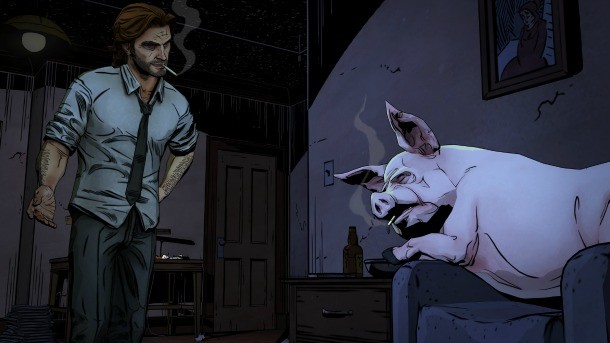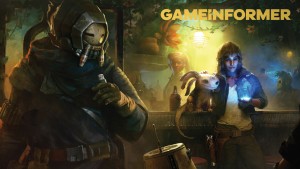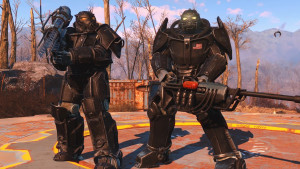Please support Game Informer. Print magazine subscriptions are less than $2 per issue
Opinion – Your Choices Don't Matter In Telltale Games

Spoiler warning: Multiple plot twists are mentioned for The Walking Dead and The Wolf Among Us.
“This game series adapts to the choices you make. The story is tailored by how you play.”
When booting up The Walking Dead for the first time, seeing this notice on-screen filled me with excitement and wonder. My choices, I thought, were going to change the game universe I was playing in and steer the storyline in new directions. I hesitated often, moving the joystick left to right on difficult decisions. The game kept me on the edge of my seat as I gripped the controller tightly in apprehension.
Clementine will remember that. Will she really? As it turns out, it didn’t seem to matter. After completing both The Walking Dead and The Wolf Among Us, I discovered that these ambitious projects failed to deliver their promise.
As a loyal fan of Telltale adventure games, I appreciate the team’s devotion to well-written storytelling. Regardless, I can’t help but feel a bit deceived. The main stories in Telltale games are as linear as The Last of Us, with only small exceptions. Various choices make one or two changes in dialogue and can alter how other characters treat you, but it does not change the main plot significantly. I can stand by the idea of Telltale adventure games being pieces of interactive fiction, because the player actively participates through dialogue and action. However, the term “choose your own adventure” is pushing it, because major decisions often don’t have lasting consequences.
The Walking Dead had me believing that I could save characters from death. After multiple playthroughs, I realized characters’ fates were etched in stone. In Season One, choosing to save either Duck or Shaun at the farm always concludes with Shaun dying. Later on, I saved Ben from a hoard of zombies in the bell tower, but his death was only postponed rather than avoided. This is seen time and time again through the franchise. In Season Two, we encounter the same problem with Sarah’s inevitable death. Characters will die regardless of your choices – it just comes down to when.

The Wolf Among Us has similar issues with choice illusion. As the sheriff of Fabletown, I could assume the role of bad cop or good cop. However, leaning towards the ruthless side, such as torturing Tweedle Dee to get answers, holds no advantage over being kind to him. Telltale advertises the importance of relationship-building, but even when characters react to your decisions, they don’t always “remember” them later. There are some exceptions, such as Fabletown judging your past choices in the final episode, but it remains inconsequential to the ending.
Another problem is the ineffective investigation scenes. I enjoyed catching Toad in his lies as they contradicted the evidence I found in his apartment, and I wish this game mechanic was used more widely in the game. For the main story, overlooking clues has no hindrance on the outcome of the case.
One difference The Wolf Among Us has from The Walking Dead, is the ability to save or kill select characters, but even those choices turn out disappointing. Visiting Prince Lawrence’s apartment before Toad’s could mean saving the prince’s life. Lawrence periodically makes cameos in two future episodes, but his appearances are usually short-lived, irrelevant or make no change to the story. Killing Dee will not alter the story either, but it gives the player an opportunity to commit an act of what some consider vigilante justice.

The Walking Dead Season Two is the first Telltale game to showcase multiple endings, which was a step in the right direction. Still, I was somewhat unsatisfied. Just like the Mass Effect 3 ending, all our previous choices throughout the game were disregarded. Telltale’s running problem is that the choices are too much “for the moment” and have no future consequences. Telltale should take notes from The Witcher 2's choice mechanics, such as branching quests that change the narrative and eventually tie back to the main storyline.
Realistically, creating a game with an abundance of different branching paths and unique levels depending on choice would pull at Telltale’s resources. The company has a live development schedule, which allows them to tweak future episodes depending on player feedback. The downfall of this can lead to less time allotted to development and could be the reason for a more linear approach to story, but that doesn’t excuse the problems. Choices need to impact the story, and have more conclusive repercussions.
If I choose not to take food from the car in The Walking Dead Season One, then the food should be left alone, rather than the group taking it anyway. Clementine or another character can still disappear under different circumstances. It wouldn’t be too difficult to tie this in, as long as the subplot concludes at the end of the episode. The main story would be affected by these different subplots, causing branching paths to lead towards alternative endings or big moments that relate to our past decisions. These mechanics would add a lot more depth and rectify Telltale’s self-proclaimed non-linear gameplay.

Issues aside, Telltale adventure games have brought me to tears, infuriated me, and left me speechless. They have created characters that I care for, and worlds that I am immersed in, crafting a narrative experience like no other. The sheer fact that these games exist and are popularizing is an accomplishment in itself. But, just like any pioneering genre, it comes with obstacles to overcome as it matures. Choice-driven gameplay is tricky to pull off, and I admire developers that take the ambitious risk of implementing it. Telltale needs to add consequence to our actions, so I can sit on the edge of my seat again, and make heart-wrenching decisions that matter.










